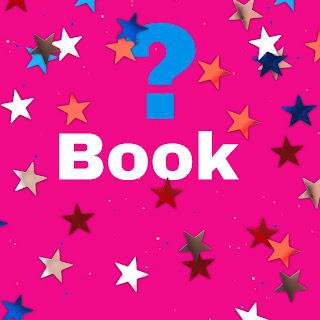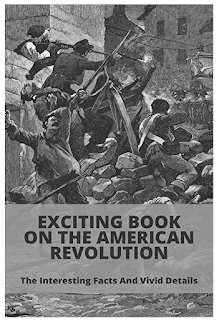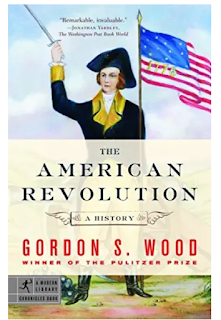Today we will talk about which books best on the american revolution.
For Buy click here
In every mind of student who was study on American revolution, this question is always arise in mind " which books best on the american revolution ". So let's see which one book is best for American revolution.
Best books on the american revolution
1. Stefan Adrian :-
Description of the book :- The American colonial period and the Revolutionary War for independence from Britain are rich subjects for kids. From the excitement of battles to spying against the Red Coats, there's plenty to engage young readers and ground students in the period.
From the rebellion against "taxation without representation" to the beginnings of American self-government, readers will learn how this unlikely group of colonists shaped a new nation. This book features all readers need to know about this exciting time:
-The beginnings of colonial unrest and rebellion
-The drafting and signing of the Declaration of Independence
-Major battles, including Lexington and Concord, Trenton, Saratoga, Valley Forge, and Yorktown
-Daily life for soldiers and ordinary colonists on both sides of the war
-The birth of the United States.
2. Gordon S. Wood :-
Description of the book :- “An elegant synthesis done by the leading scholar in the field, which nicely integrates the work on the American Revolution over the last three decades but never loses contact with the older, classic questions that we have been arguing about for over two hundred years.” —Joseph J. Ellis, author of Founding Brothers.
A magnificent account of the revolution in arms and consciousness that gave birth to the American republic.
When Abraham Lincoln sought to define the significance of the United States, he naturally looked back to the American Revolution. He knew that the Revolution not only had legally created the United States, but also had produced all of the great hopes and values of the American people. Our noblest ideals and aspirations-our commitments to freedom, constitutionalism, the well-being of ordinary people, and equality-came out of the Revolutionary era. Lincoln saw as well that the Revolution had convinced Americans that they were a special people with a special destiny to lead the world toward liberty. The Revolution, in short, gave birth to whatever sense of nationhood and national purpose Americans have had.
No doubt the story is a dramatic one: Thirteen insignificant colonies three thousand miles from the centers of Western civilization fought off British rule to become, in fewer than three decades, a huge, sprawling, rambunctious republic of nearly four million citizens. But the history of the American Revolution, like the history of the nation as a whole, ought not to be viewed simply as a story of right and wrong from which moral lessons are to be drawn. It is a complicated and at times ironic story that needs to be explained and understood, not blindly celebrated or condemned. How did this great revolution come about? What was its character? What were its consequences? These are the questions this short history seeks to answer. That it succeeds in such a profound and enthralling way is a tribute to Gordon Wood’s mastery of his subject, and of the historian’s craft.
Review
“Remarkable, invaluable.” —Jonathan Yardley, The Washington Post Book World
“Wood is the preeminent historian of the Revolution. . . . Here . . . he manages to boil down to its essence this crucial period in the country’s history without in the process reducing it to History Lite. . . . His account of the emergence and development of rank-and-file political opinion is especially provocative and informative, but then so is just about everything else in this remarkable, invaluable book.” —The Washington Post Book World
“An elegant, concise and lucid summary of the Revolution’s origins, the war itself, and the social and political changes wrought by the struggle for American independence.” —The Wall Street Journal
“This slim book tells a big story: one that invites the reader to contemplate the relationships between liberty, power, rights and the unpredictable outcomes of human action.” —Los Angeles Times Book Review
“An elegant synthesis done by the leading scholar in the field, which nicely integrates the work on the American Revolution over the last three decades but never loses contact with the older, classic questions that we have been arguing about for over two hundred years.” —Joseph J. Ellis, author of Founding Brothers
From the Inside Flap
An elegant synthesis done by the leading scholar in the field, which nicely integrates the work on the American Revolution over the last three decades but never loses contact with the older, classic questions that we have been arguing about for over two hundred years.?
-Joseph J. Ellis, author of Founding Brothers
A magnificent account of the revolution in arms and consciousness that gave birth to the American republic.
When Abraham Lincoln sought to define the significance of the United States, he naturally looked back to the American Revolution. He knew that the Revolution not only had legally created the United States, but also had produced all of the great hopes and values of the American people. Our noblest ideals and aspirations-our commitments to freedom, constitutionalism, the well-being of ordinary people, and equality-came out of the Revolutionary era. Lincoln saw as well that the Revolution had convinced Americans that they were a special people with a special destiny to lead the world toward liberty. The Revolution, in short, gave birth to whatever sense of nationhood and national purpose Americans have had.
No doubt the story is a dramatic one: Thirteen insignificant colonies three thousand miles from the centers of Western civilization fought off British rule to become, in fewer than three decades, a huge, sprawling, rambunctious republic of nearly four million citizens. But the history of the American Revolution, like the history of the nation as a whole, ought not to be viewed simply as a story of right and wrong from which moral lessons are to be drawn. It is a complicated and at times ironic story that needs to be explained and understood, not blindly celebrated or condemned. How did this great revolution come about? What was its character? What were its consequences? These are the questions this short history seeks to answer. That it succeeds in such a profound and enthralling way is a tribute to Gordon Wood?s mastery of his subject, and of the historian?s craft.
3. Bernard Bailyn :
Description of the book :- The Ideological Origins of the American Revolution is a classic of American historical literature—required reading for understanding the Founders’ ideas and their struggles to implement them. In the preface to this 50th anniversary edition, Bernard Bailyn isolates the Founders’ profound concern with the uses and misuses of power.
Review
A distinguished achievement. Mr. Bailyn writes with the authority and integrity that derive from a thorough mastery of the material. His meticulous scholarship is matched with perceptive analysis.--New York Review of Books One cannot claim to understand the Revolution without having read this book.--New York Times Book Review The most brilliant study of the meaning of the Revolution to appear in a generation.--History Tightly written and politically sophisticated...In the field of American Revolutionary Studies, Bailyn's book must henceforth occupy a position of first rank.--Saturday Review With this reading of the American Revolutionary Experience, Mr. Bailyn has substantially and profoundly altered the nature and direction of the inquiry on the American Revolution. In the process he has also erected a new framework for interpreting the entire first half-century of American national history...A landmark in American historiography.--American Quarterly In every area of Bernard Bailyn's research--whether Virginia society of the 17th century or the schools of early America--he transformed what historians had hitherto thought about the subject. In The Ideological Origins of the American Revolution, the most famous of his works, Bailyn uncovered a set of ideas among the Revolutionary generation that most historians had scarcely known existed. These radical ideas about power and liberty, and deeply rooted fears of conspiracy, had propelled Americans in the 1760s and 1770s into the Revolution, Bailyn said. His book, which won the Pulitzer and Bancroft prizes in 1968, influenced an entire generation of historians. For many, it remains the most persuasive interpretation of the Revolution.--Gordon S. Wood "Wall Street Journal "
FAQS on the american revolution :-
Ques1) which book is helpful on American revolution in upsc?
Ans 1) Gordon S. Wood is helpful in upsc. Yes , this book is most informative.
Ques2) list of the best books on the american revolution ?
Ans 2) Stefan Adrian, Gordon S. Wood , Bernard Bailyn . This books is best on American revolution.






